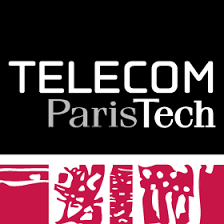The workshop takes place on Thursday September 22, in the morning. All
times in the schedule are CEST times.
The final versions of the papers can be accessed by clicking on the
title in the program or via the proceedings in the HAL open archive.
| Thursday September 22, 2022 |
| 9:00 – 9:15 |
Registration |
| 9:15 – 9:20 |
Opening remarks |
| 9:20 – 10:20 |
Keynote (chair: Ulrich Kühne)
|
| 10:20 – 10:45 |
Paper session (chair: Ulrich Kühne)
|
| 10:45 – 11:10 |
Break |
| 11:10 – 12:10 |
Keynote (chair: Maria Mushtaq)
|
| 12:10 – 13:00 |
Paper session (chair: Jean-Luc Danger)
|
| 13:00 – 13:05 |
Closing remarks |
Frank Piessens
Provable Security Against Transient Execution Attacks Through Hardware/Software Co-design
Abstract:
Transient execution attacks are a threat to many important computation
platforms, such as, for instance, cloud platforms or browsers. A key
challenge in mitigating these attacks is achieving strong security
guarantees without giving up on the performance benefits that
speculation and out-of-order execution offer. One promising approach to
achieve good performance/security trade-offs is to co-design hardware
and software countermeasures in a systematic way. This talk will
discuss how the combination of specific software and hardware
countermeasures can provide both provable and efficient end-to-end
security guarantees against Spectre attacks.
 Frank Piessens is a full professor in the Department of Computer
Science at the Katholieke Universiteit Leuven, Belgium. His research
field is software and systems security. He has worked both on attack
techniques, as well as on defenses. On the defense side, he has
contributed to verification techniques for C-like languages, the
enforcement of information flow security, countermeasures for memory
safety related vulnerabilities, and the design and implementation of
embedded security architectures. On the attack side, he has contributed
to the discovery of several transient execution attacks, and to the
development of exploitation techniques for memory safety
vulnerabilities. Frank has served on the program committee of numerous
security and software conferences including ACM CCS, Usenix Security,
IEEE Security & Privacy, and ACM POPL. He acted as program chair for
the International Conference on Principles of Security and Trust (POST 2016),
for the IEEE European Symposium on Security & Privacy (Euro S&P 2018 & 2019), and for the IEEE Secure Development Conference (SecDev 2021 & 2022).
Frank Piessens is a full professor in the Department of Computer
Science at the Katholieke Universiteit Leuven, Belgium. His research
field is software and systems security. He has worked both on attack
techniques, as well as on defenses. On the defense side, he has
contributed to verification techniques for C-like languages, the
enforcement of information flow security, countermeasures for memory
safety related vulnerabilities, and the design and implementation of
embedded security architectures. On the attack side, he has contributed
to the discovery of several transient execution attacks, and to the
development of exploitation techniques for memory safety
vulnerabilities. Frank has served on the program committee of numerous
security and software conferences including ACM CCS, Usenix Security,
IEEE Security & Privacy, and ACM POPL. He acted as program chair for
the International Conference on Principles of Security and Trust (POST 2016),
for the IEEE European Symposium on Security & Privacy (Euro S&P 2018 & 2019), and for the IEEE Secure Development Conference (SecDev 2021 & 2022).
Russel Tessier
Security Challenges and Solutions for Multi-Tenant FPGAs
Abstract:
The increased use of FPGAs in cloud and embedded computing environments
has led to a number of potential security risks. The sizable amount of
logic resources in these devices makes them amenable to sharing across
multiple untrusted tenants. However, the co-location of multiple
independent circuits presents the possibility of side-channel and fault
injection attacks. In this talk, a series of multi-tenant FPGA attacks
involving on-chip voltage manipulation will be described and analyzed.
These attacks have been performed on multiple families of Intel FPGAs,
including Stratix 10 devices and Xilinx UltraScale+ devices. A
sensor-based remediation approach that can prevent a voltage attack
within 20 microseconds in a Stratix 10 device will also be presented.
 Russell Tessier is a Professor of Electrical and Computer Engineering
at the University of Massachusetts Amherst. He has performed research
in FPGAs and reconfigurable computing for over 30 years. He was a
founder of Virtual Machine Works, an FPGA-based logic emulation company
that is now owned by Siemens. Among other service roles, he has served
on the Program Committee of the ACM/SIGDA International Symposium on
FPGAs since 2000. His recent research interests include FPGA security
and cloud FPGA computing.
Russell Tessier is a Professor of Electrical and Computer Engineering
at the University of Massachusetts Amherst. He has performed research
in FPGAs and reconfigurable computing for over 30 years. He was a
founder of Virtual Machine Works, an FPGA-based logic emulation company
that is now owned by Siemens. Among other service roles, he has served
on the Program Committee of the ACM/SIGDA International Symposium on
FPGAs since 2000. His recent research interests include FPGA security
and cloud FPGA computing.

 Frank Piessens is a full professor in the Department of Computer
Science at the Katholieke Universiteit Leuven, Belgium. His research
field is software and systems security. He has worked both on attack
techniques, as well as on defenses. On the defense side, he has
contributed to verification techniques for C-like languages, the
enforcement of information flow security, countermeasures for memory
safety related vulnerabilities, and the design and implementation of
embedded security architectures. On the attack side, he has contributed
to the discovery of several transient execution attacks, and to the
development of exploitation techniques for memory safety
vulnerabilities. Frank has served on the program committee of numerous
security and software conferences including ACM CCS, Usenix Security,
IEEE Security & Privacy, and ACM POPL. He acted as program chair for
the International Conference on Principles of Security and Trust (POST 2016),
for the IEEE European Symposium on Security & Privacy (Euro S&P 2018 & 2019), and for the IEEE Secure Development Conference (SecDev 2021 & 2022).
Frank Piessens is a full professor in the Department of Computer
Science at the Katholieke Universiteit Leuven, Belgium. His research
field is software and systems security. He has worked both on attack
techniques, as well as on defenses. On the defense side, he has
contributed to verification techniques for C-like languages, the
enforcement of information flow security, countermeasures for memory
safety related vulnerabilities, and the design and implementation of
embedded security architectures. On the attack side, he has contributed
to the discovery of several transient execution attacks, and to the
development of exploitation techniques for memory safety
vulnerabilities. Frank has served on the program committee of numerous
security and software conferences including ACM CCS, Usenix Security,
IEEE Security & Privacy, and ACM POPL. He acted as program chair for
the International Conference on Principles of Security and Trust (POST 2016),
for the IEEE European Symposium on Security & Privacy (Euro S&P 2018 & 2019), and for the IEEE Secure Development Conference (SecDev 2021 & 2022).
 Russell Tessier is a Professor of Electrical and Computer Engineering
at the University of Massachusetts Amherst. He has performed research
in FPGAs and reconfigurable computing for over 30 years. He was a
founder of Virtual Machine Works, an FPGA-based logic emulation company
that is now owned by Siemens. Among other service roles, he has served
on the Program Committee of the ACM/SIGDA International Symposium on
FPGAs since 2000. His recent research interests include FPGA security
and cloud FPGA computing.
Russell Tessier is a Professor of Electrical and Computer Engineering
at the University of Massachusetts Amherst. He has performed research
in FPGAs and reconfigurable computing for over 30 years. He was a
founder of Virtual Machine Works, an FPGA-based logic emulation company
that is now owned by Siemens. Among other service roles, he has served
on the Program Committee of the ACM/SIGDA International Symposium on
FPGAs since 2000. His recent research interests include FPGA security
and cloud FPGA computing.

